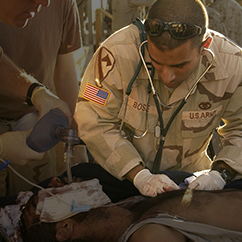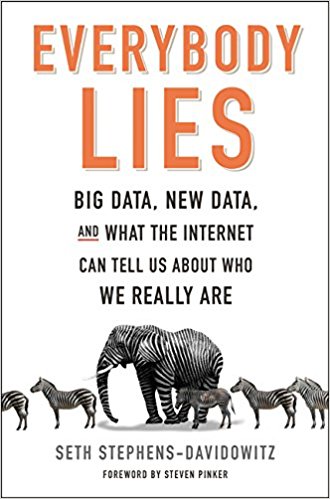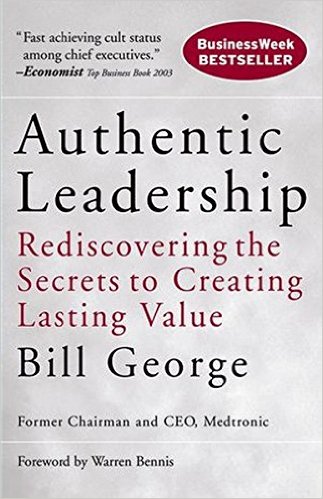 Dr. Sudip Bose, one of the world’s leading physicians, and an entrepreneur, philanthropist, Bronze Star recipient and CNN Hero, shares what he learned in the emergency room and on the battlefield on how to inspire others to find their grit and lead.
Dr. Sudip Bose, one of the world’s leading physicians, and an entrepreneur, philanthropist, Bronze Star recipient and CNN Hero, shares what he learned in the emergency room and on the battlefield on how to inspire others to find their grit and lead.
[9:47] In the military, Sudip learned to rise to challenges. Work out, strengthen your mind, and keep your principles. You are responsible for the people you lead.
[11:58] Optimism is contagious but maintain realism. Leadership balances the qualitative and quantitative aspects. Vision is qualitative. Profit margins are quantitative. Balance optimism and realism.
[20:42] Authenticity lets you make the tough decisions in the right way. Sudip recalls working on the insurgent who had just killed his friend.
[22:43] Communicating well is the one critical skill that 91% of employees in a Harris Poll said that leaders lack. The same survey said business leaders and managers lack emotional intelligence in how they communicate. Praise success and take the blame for mistakes. The buck stops here.
[31:35] Studying is different from being in the field. You can prepare so much, but fresh challenges will come, and you will be shot at. Go back to your training and stick with your principles, and learn from it.
[35:06] Sudip speaks to groups and uses the funds to help injured veterans. He translates experiences from the emergency room and the military into lessons tailored to the audience. Leaders are born, but they are not born leaders. Sudip froze at his first medical code. Leaders learn from their mistakes and experiences. They have to learn the quantitative and qualitative aspects of their roles.
[36:39] Successful people have grit. Find your grit and be the leader you want to be. Passion goes with grit and perseverance. Use your life’s experiences to improve. Sudip says if he can go from freezing at a code to becoming a leading physician, then anyone can use their grit to improve and succeed.
How to contact Sudip:
Website: TheBattleContinues.org
Website: SudipBoseSpeaker.com
Website: LiveClinic.com
Website: SudipBose.com
Website: Leadership-Under-Pressure.com
Website: KeepYourInnerArmyStrong.com
Website: AceYourBoards.com
“Being a servant leader, you serve the people you lead.”
“Courage isn’t necessarily the absence of fear. It’s just knowing that there’s something larger.”
“[Emergencies] bring you to the edge of your discomfort and you learn from it so that you can be a better leader later.”
Leaders balance confidence and optimism with the realities of a tough situation.
“If you can’t inspire yourself, how the heck are you going to inspire others?”
“Mistakes are good. Mistakes mean decisions are being made, and we’ll fix [the mistakes].”
Authenticity overcomes concerns about being liked.
“We like to be liked as leaders … but … you have to balance the qualitative and the quantitative.”
“Healthy and productive communication requires connection, but it also requires authenticity.”
“When there’s success, give credit. When there’s error, take the blame.”
Find your grit.
“In history, no leaders have had to process so much information to make a simple decision.”
It’s easy to be a giver, considering all that has been given to you by so many.
Bio
Sudip Bose, MD, FACEP, FAAEM, is a former major in the U.S. Army and an Iraq war veteran, and selected as the U.S. physician who treated Saddam Hussein after his capture, for which he was honored as a “CNN Hero.” He is a practicing emergency physician at Medical Center Hospital in Odessa, TX and serves as the City Medical Director for Odessa. For his outstanding work in medicine, Dr. Bose has been recognized as one of the “World’s Leading Physicians” as well as one of “America’s Healthcare Leaders.” Dr. Bose continues to serve his country. His prior experience influenced him to start www.TheBattleContinues.org, a nonprofit charity which helps veterans and educates the public on healthcare.
- Recognized as one of the “Leading Physicians of the World” by the International Association of Healthcare Professionals.
- Iraq war veteran, recognized as a “CNN Hero” for receiving the Bronze Star and being selected as the US physician who treated Saddam Hussein after his capture. He served one of the longest continuous combat tours by a military physician since World War II.

These are the books mentioned in Sudip’s podcast.






Excellent !